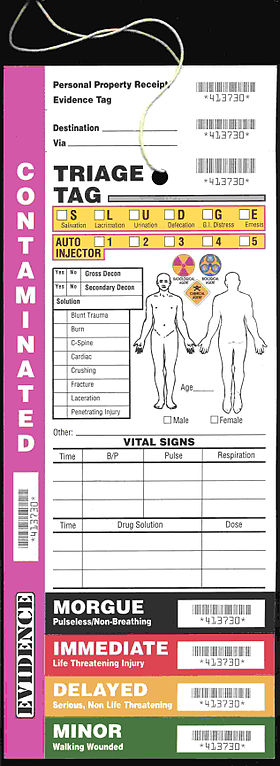Creativity Triage: Saving What You Can
 In the final days before a big upcoming gig, I find myself thinking about early 20th century French battlefield medicine. Specifically, the concept of triage.
In the final days before a big upcoming gig, I find myself thinking about early 20th century French battlefield medicine. Specifically, the concept of triage.
Derived from the French "trier" (to sort or filter), triage is the process of deciding how to allocate medical care when there are too many wounded people to adequately help them all.
At triage's core is a horrible but logical concept: if you have limited medical resources and a large number of wounded people, some of them are going to die no matter what help they're given. Some are going to survive without help, and some are in the middle where immediate attention will make the difference between life and death. If you can quickly determine who is in which category, you can maximise the number of people who survive. Originally developed for battlefield medicine, triage is still used in disaster response planning and hospital emergency rooms; situations where there may be a large number of wounded people and insufficient resources to treat them all in a timely manner.
Though I went through a triage process once, many years ago (I was categorised as "low urgency; likely to survive without immediate treatment"), I feel incredibly lucky that life and death decisions aren't in my job description. However, the lessons learned from them can be very useful when navigating the chaotic time just before a new show.
As mentioned previously, I'm about to do a brand new one-hour solo show at the upcoming Melbourne Magic Festival. I've been working on material for it for the past year, and poured heart and soul into some of the routines that make up the show. And, as is ever the case with creative works, so much of the work comes down to the deadline.
So with a few days to go, the routines and concepts that make up the show are going through a brutal triage process.
Category 1:
Some of them are doing fine; I could perform them right now and they'd be adequately entertaining. Though they could be greatly improved with more work, they're not urgent enough to spend valuable time on right now.
Category 2:
Some routines are simply not ready, and realistically aren't going to be in the time available. Painful though it is, those have to be scrapped now. They'll almost certainly be resurrected for future versions of the show when I have more time, but for now they're being discarded.
Category 3:
Then there are the routines in the middle; which aren't ready but may still get there. Right now there are three of those on my list, and I am working like a maniac on bringing them to fruition.
Stressful though it is, I'm very glad I get to apply the triage process to creative works rather than human lives. And though triage wasn't designed for show business, I find that the concept helps hugely with the chaos and stress of the last minute decisions that it takes to bring a new show to life.
(Photo via Wikimedia commons user Aleichem, licensed under CC-BY-SA-3.0)
Next post: 90 Minutes Before Opening Night »
« Previous post: Why I Was Wrong About The Melbourne Magic Festival


